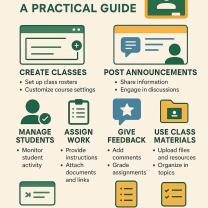Why do international students need an education agent?
International students may choose to work with education agents for several reasons, as these agents can provide valuable assistance and guidance throughout the process of studying abroad. Here are some key reasons why international students often rely on education agents:
Navigating the Application Process: Education agents are knowledgeable about the application procedures for various universities and colleges in different countries. They can help students understand the application requirements, deadlines, and necessary documentation.
Expertise on Visa and Immigration: Education agents can provide information and guidance on visa and immigration requirements. They can help students prepare and submit the necessary visa application documents and assist with visa interviews if required.
Assistance with Program Selection: Education agents can help students identify suitable academic programs based on their educational background, career goals, and preferences. They can provide information on the available courses, universities, and colleges that align with a student's interests.
Financial Guidance: Education agents can offer advice on financial planning, including estimating the cost of studying abroad, securing scholarships or financial aid, and understanding currency exchange rates.
Language Proficiency: For students who need to improve their language skills before enrolling in a degree program, education agents can recommend language schools or programs to enhance language proficiency.
Cultural Adjustment: Adjusting to a new country and culture can be challenging. Education agents can offer insights into the local culture, customs, and expectations, helping students adapt more smoothly to their new environment.
Pre-Departure Services: Education agents often provide pre-departure orientation sessions that cover essential information such as accommodation options, travel arrangements, and what to expect upon arrival in the host country.
Support Throughout the Journey: Education agents continue to assist students after they arrive at their destination. They can help with tasks such as finding accommodation, registering for classes, and addressing any issues or concerns that may arise during the academic year.
Local Knowledge: Education agents have local knowledge and connections in the host country, which can be valuable for students who are unfamiliar with the area. They can recommend resources, services, and local support networks.
Streamlined Process: Working with an education agent can streamline the application process, saving students time and effort. Agents can help ensure that all required documents are submitted correctly and on time.
It's important for international students to choose reputable education agents who adhere to ethical practices and prioritize the best interests of the students. Students should research and verify the credentials of education agents and seek recommendations or reviews from others who have used their services.
While education agents can offer valuable support, students should also take an active role in researching their options, understanding visa regulations, and making informed decisions about their education and future.












